Keto constipation is common and can occur due to poor fat digestion, dairy sensitivities, or electrolyte imbalances.
Hard stool that’s difficult to pass may also be linked to gut microbes adapting to higher intakes of dietary fiber and fat on the ketogenic diet.
Discover the causes of keto diet constipation, eight effective remedies, and how to prevent future problems.
What is keto constipation?
Keto constipation is a common side effect of transitioning from a carb-based diet to a high-fat diet.
Though keto constipation isn’t a serious issue and typically resolves itself, persistent constipation can cause fecal impaction.
Fecal impaction occurs when you can’t pass stool, causing a build-up in the large intestine. This can lead to abdominal pain, loss of appetite, and lethargy.
Untreated fecal impaction can also cause more serious problems, including:
- Ulcers
- Colitis
- Colon obstruction
Constipation is considered three or fewer bowel movements per week and is associated with discomfort, straining, bloating, and gas. However, if you started keto and poop less without experiencing other symptoms, you may not be constipated.
Watch the video below to learn more about constipation on keto.
What causes keto constipation?
While keto has profound health benefits, including weight loss and better energy levels, transitioning into a high-fat diet triggers various metabolic and digestive changes, which can lead to temporary constipation in some individuals.
Here are five causes of constipation on keto.
1. Lack of beneficial gut bacteria
Healthy Keto® advocates the consumption of between 7 and 10 ten cups of vegetables daily.
Most people aren’t used to eating large volumes of vegetables, which can trigger constipation, especially if they have an imbalanced intestinal microflora.
Probiotic bacteria break down fiber, and you can overload your digestive system if you lack adequate amounts of these beneficial microbes.
“Overwhelming the microbes in your gut with too much fiber can cause constipation,” says Dr. Berg, “You may want to start with four cups of vegetables and slowly increase the amount over time.”
2. Sluggish fat digestion
Starting keto can overwhelm the body’s ability to digest and absorb dietary fats.
Bile plays a crucial role in the breakdown of fats, and individuals with sluggish gallbladder function are at increased risk of keto constipation.
Poor fat absorption can affect many aspects of digestive processes, including the movement of stool through the large intestines, which can lead to constipation.
3. Electrolyte imbalances
Magnesium and potassium are essential for maintaining healthy digestive processes. These electrolytes stimulate a stagnant colon, which helps eliminate waste and prevents constipation.
Transitioning into keto induces metabolic changes that can cause temporary fluid loss and electrolyte imbalances, potentially contributing to keto constipation.
4. Lactose intolerance
Consuming high amounts of dairy can lead to constipation, especially in those who are lactose intolerant or have a casein allergy.
A study published in Nutrients concluded that constipation can be a symptom of lactose intolerance, along with gas and bloating. It also suggested that avoiding lactose can improve symptoms of constipation in adults.1
5. Dehydration
Not drinking enough water can affect the quality of stool. A dehydrated body attempts to reabsorb water, which creates hard stool that’s difficult to eliminate and causes straining and abdominal pain.
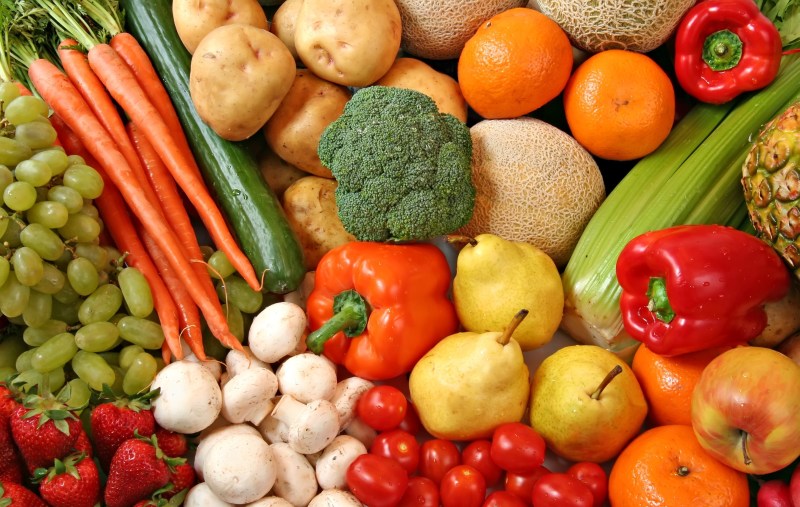
The fiber myth
Most people think eating more fiber-rich foods or taking a fiber supplement relieves and prevents constipation. In contrast, ketogenic diets are often thought to cause constipation due to a lack of fiber.
However, a high-fiber diet may not be the primary factor in constipation.
A study published in the World Journal of Gastroenterology concluded that “Idiopathic constipation and its associated symptoms can be effectively reduced by stopping or even lowering the intake of dietary fiber.” 2
According to this study, fiber isn’t necessary to prevent constipation, and reducing fiber may even improve this condition in some people.
Pooping less on the keto diet may be linked to eliminating highly fibrous plants, such as:
- Corn
- Beans
- Peas
- Sweet potatoes
There are two different types of fiber: soluble and insoluble fiber.
Soluble fiber is broken down and digested by bacteria in the gut, while insoluble fiber remains undigested.
Most people consume less insoluble fiber and more bioavailable nutrients on the keto diet. This reduces bulk in the digestive system and minimizes waste.
In addition, data published in The Journal of Nutrition concluded that excess insoluble fiber may impair the absorption of iron, zinc, and calcium, which can impact digestive and muscle functions linked to an increased risk of constipation.
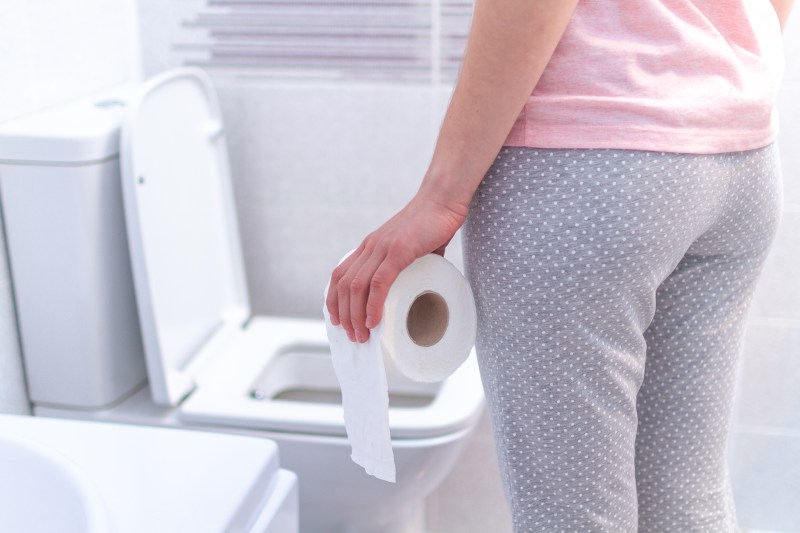
8 remedies for keto constipation
Changing your diet can have unpleasant side effects on your digestive tract, including gas, bloating, and constipation as your body adapts.
However, there are plenty of steps you can take to promote healthy digestive functions and get rid of constipation quickly.
Here are eight natural remedies for healthy bowel movements.
1. Adjust vegetable intake
Eating multiple cups of vegetables daily can lead to constipation in those with insufficient gut microbes. Having difficulties digesting large quantities of vegetables may be a sign that you need to cut back.
However, if you consume mainly protein and no vegetables, you could also be at risk of constipation and may need to increase your fiber intake to loosen hard stools that are difficult to pass.
In addition, changing the type of vegetables you eat may also ease constipation. Cruciferous vegetables can be harder to break down, while fermented vegetables, lettuce, and steamed vegetables are generally easier to digest.
2. Take bile salts
Bile is released by the gallbladder and aids the digestion of fats and absorption of fat-soluble vitamins.
Research published in Steroids shows that bile salts are necessary to digest and metabolize nutrients and promote overall functions of the digestive tract.3
Keto is a high-fat diet, and a bile salt deficiency can lead to poor fat digestion and malabsorption.
Taking purified bile salts is an excellent strategy to support fat digestion and lubricate the colon, which is crucial in preventing constipation.
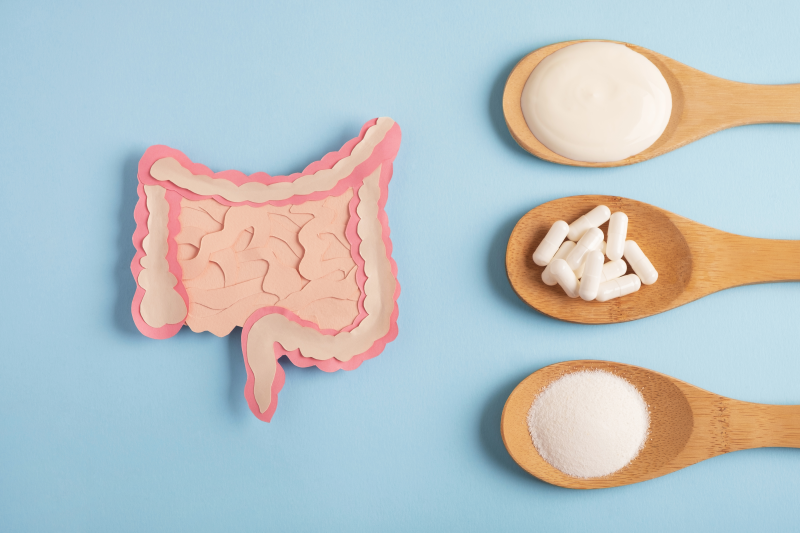
3. Take probiotics
A high-quality probiotic supplement can help replenish the microbes your gut needs to digest fiber.
Probiotic supplements are usually available as capsules, liquids, or powders and should include strains that can survive stomach acid, such as Lactobacillus and Bifidobacterium species.
Research published in Medicine concluded that Lactobacillus bacteria relieved constipation by improving stool quality and evacuation frequency.4
4. Increase intake of potassium
Potassium helps with smooth muscle contraction in the colon, and potassium deficiency can lead to large intestines that can’t contract properly to move stool along the digestive tract.
Here are some of the best potassium-rich foods:
- Avocados
- Spinach
- Tomatoes
- Swiss chard
- Yogurt
In addition, taking a potassium-rich electrolyte powder is a convenient and effective way to support electrolyte balance and promote digestive health.
5. Reduce dairy intake
If you’re sensitive to dairy, reducing or eliminating dairy products may reduce inflammation in the gut, which supports healthy digestion and waste elimination.
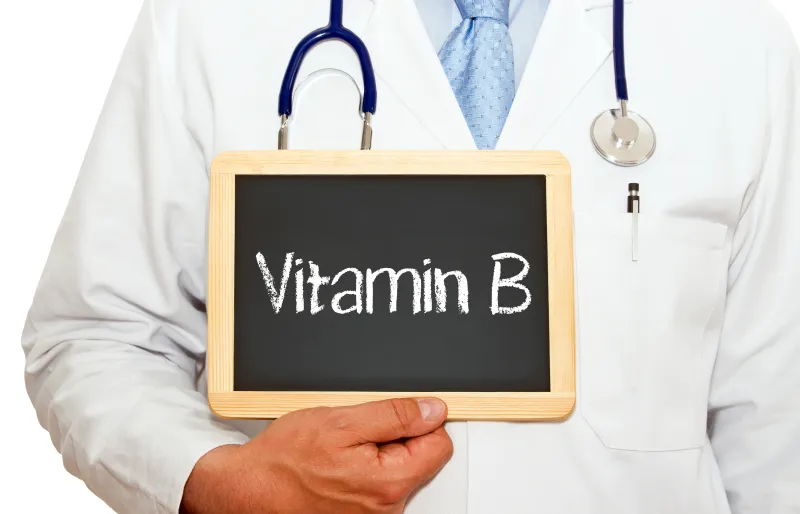
6. Consume plenty of vitamin B1-rich foods
A vitamin B1 deficiency can result in insufficient neurotransmitters needed to activate muscle movement in the colon. This explains why vitamin B1 naturally helps promote colon movement, called peristalsis.
Lack of adequate vitamin B1 can also cause the cells in the pancreas to release fewer digestive enzymes, slowing digestion and potentially leading to constipation.
Sources of vitamin B1 include:
- Eggs
- Beef
- Nuts and seeds
- Liver
- Salmon
- Avocados
7. Avoid processed foods
Processed and fast foods often contain additives, chemicals, and vegetable oils that may inflame the gastrointestinal tract. These foods also have little nutritional value and lack fiber, making them difficult to digest.
Reducing processed foods and increasing nutritious whole foods can provide your digestive system with the nutrients and fiber it needs to function optimally.
8. Stay hydrated
When soluble fiber is digested, it draws water into your colon to form a gel-like consistency. This expands the fiber and helps bulk out stool.
Not drinking enough water after consuming vegetables could dehydrate your colon, leading to hard stool that’s difficult to pass.
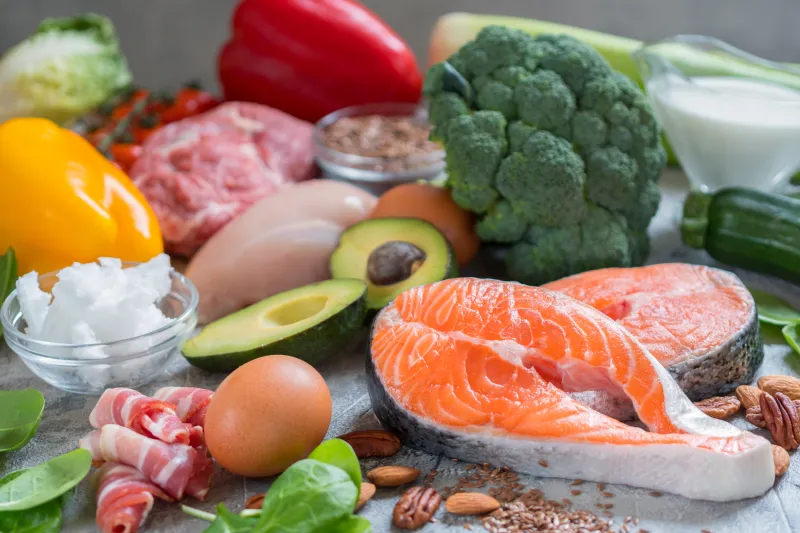
Keto constipation prevention tips
Besides drinking enough water, one of the simplest ways to prevent keto constipation is to gradually transition into the keto diet.
Though it will take more time to get into ketosis, slowly reducing your carb intake can give your digestive system time to adjust.
The ketogenic diet plan restricts carbs to between 20 and 50 grams per day. Starting at 50 grams of carbs per day and slowly reducing your daily net carb limit to 20 grams may help prevent adverse gastrointestinal symptoms.
Consuming organic whole foods may also help prevent chronic constipation. Processed and fast foods often lack nutrients and contain additives and chemicals linked to poor digestive functions, even if they’re labeled as keto-friendly.
Incorporate fiber-rich keto foods into your diet, including chia seeds, avocados, sauerkraut, and non-starchy vegetables such as Brussels sprouts, broccoli, collard greens, and cauliflower.
GMO produce sprayed with chemical pesticides and animal products treated with antibiotics and raised on grain feed may also strain the digestive tract.
A review of 117 studies published in the International Journal of Environmental Research and Public Health proposes a correlation between ingesting chemical pesticides and a disrupted microbiome. An imbalanced intestinal microflora has been linked to digestive issues, food intolerance, and constipation.5
When possible, opt for organic, non-GMO, and grass-fed products to avoid potential gut issues and constipation.

More ways to get rid of constipation
Adjusting dairy and fiber intake while supplementing with probiotics and bile salts can improve long-term digestive health.
However, if you need immediate elimination, here are four ways to relieve constipation fast.
1. Use a natural laxative
Natural laxatives are alternatives to over-the-counter or prescription laxatives and may help you avoid common side effects associated with these medications.
Some of the best natural laxatives include:
- Senna
- Cascara sagrada
- Black psyllium
- Castor oil
- Magnesium
These natural remedies help stimulate smooth muscle contraction and relieve constipation, which can prevent toxins in your stool from being reabsorbed into the body.
2. Exercise
Exercise is essential for optimal bodily function, including digestion.
Exercise stimulates blood flow to the gastrointestinal tract and triggers the abdominal muscles to contract. This helps move stool into the rectum for elimination.
Though more studies are needed, research published in the Scandinavian Journal of Gastroenterology suggests that exercise may be effective in treating constipation for these reasons.6
3. Bowel training
Bowel training can help develop predictable bowel habits by establishing regular bathroom breaks.
Use the bathroom when you feel the urge to go, and give yourself adequate time so you don’t feel rushed. Footstools that position your body into a squat may also help empty your bowels more efficiently.
A study published in the Journal of Clinical Gastroenterology found that squatting reduces strain, decreases defecation time, and improves stool elimination compared to sitting.7
4. Use an enema
Enema bags contain a saltwater mixture that’s inserted into the rectum and flushed into the body. The fluid loosens the stool lodged in the rectum and expands the rectal muscles, causing them to flex and expel waste.
Enemas are invasive but can reliably flush impacted stool if other methods don’t work.
Though irregular bowel movements when starting the keto diet are normal, it’s crucial to consult a healthcare provider before attempting enemas or any other therapeutic strategies to manage constipation.

Key takeaways
Can the keto diet cause constipation? Yes, dietary changes when starting a low-carb diet can lead to temporary constipation.
Although keto constipation is common, there are various natural remedies that support healthy bowel movements.
Adjusting fiber intake, drinking plenty of water, and supplementing with bile salts, probiotics, and electrolytes supports gut health and can help manage constipation.
FAQ
1. Can a low-carb diet make you constipated?
Yes, a low-carb diet can make you constipated. Poor fat digestion, lack of beneficial gut bacteria, and consuming too much or too little fiber can impact digestive functions and lead to hard stool that’s difficult to pass.
Additionally, many individuals increase their dairy intake after starting keto, which can constipate those with lactose intolerance.
2. Will fiber stop constipation on keto?
No, it’s not guaranteed that high-fiber foods or fiber supplements will stop keto constipation. Constipation on the keto diet can be linked to poor fat digestion, excessive dairy intake, or changes in the intestinal microflora.
Limit dairy and eat less fibrous vegetables to see if symptoms resolve. Alternatively, opt for bile salts and probiotics to support a healthy digestive system.
3. What are the best natural remedies for keto constipation?
There are various natural remedies to optimize digestion. Supplementing with quality probiotics and bile salts can support a diverse microbiome and bile production, helping the body digest dietary fiber and break down fats.
Transitioning into the keto diet gradually, adjusting your fiber intake, staying hydrated, and reducing dairy may also help normalize bowel movements.
4. Why do I poop so much less on keto?
Typically, insoluble fiber intake decreases on keto. Insoluble fiber adds a lot of bulk to waste, which explains why many keto dieters require fewer bathroom trips.
5. How do I prevent constipation on keto?
Fewer bowel movements can lead to bloating, pain, and discomfort. Fortunately, there are various ways to prevent constipation on keto, including exercise and adequate hydration. This helps improve blood flow to the digestive muscles and soften stool.
In addition, some individuals benefit from slowly reducing carbohydrate intake, which can help your body get accustomed to the metabolic and digestive changes associated with a high-fat diet.
Sources
- https://www.ncbi.nlm.nih.gov/pmc/articles/PMC9105309/ ?
- https://www.wjgnet.com/1007-9327/full/v18/i33/4593.htm ?
- https://www.ncbi.nlm.nih.gov/pmc/articles/PMC4073476/ ?
- https://www.ncbi.nlm.nih.gov/pmc/articles/PMC9622669/ ?
- https://pubmed.ncbi.nlm.nih.gov/34063879/ ?
- https://pubmed.ncbi.nlm.nih.gov/30843436/ ?
- https://www.ncbi.nlm.nih.gov/pmc/articles/PMC6382038/#:~:text=8%20Previous%20studies%20have%20documented,defecation%20when%20compared%20with%20sitting. ?







